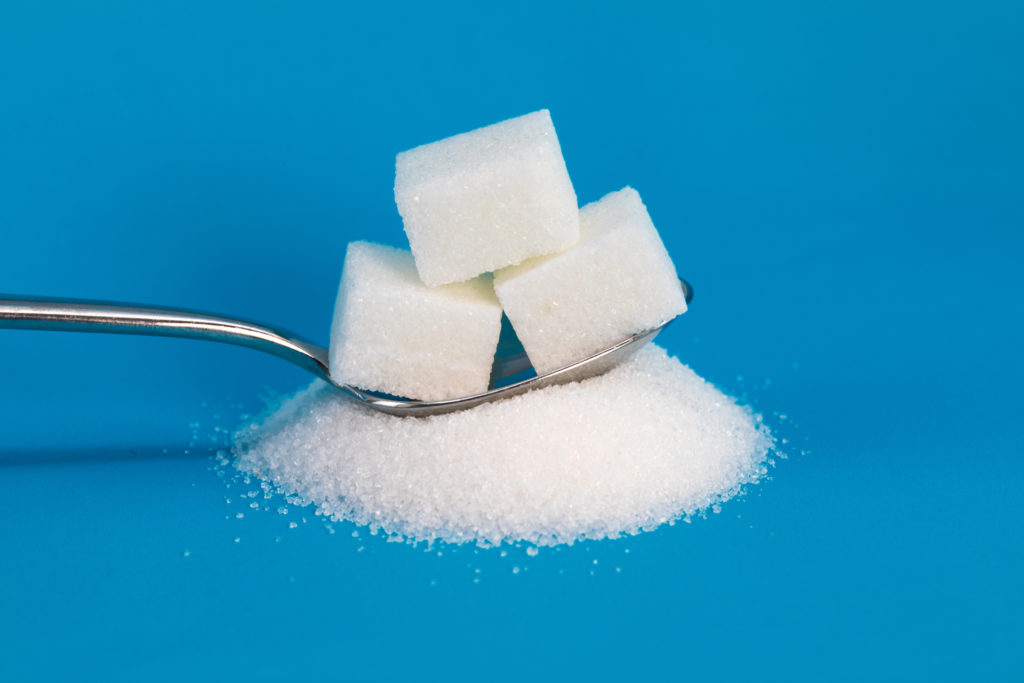Six teaspoons o 25 grams a day: if you want to maintain good health and not increase the risk of developing dozens of diseases, you should limit the daily consumption of free sugars, i.e. those added and those naturally present in honey, syrups and fruit juices . A quantity which, although apparently not so small, is actually exceeded very easily, given that sugar is present in many foods and drinks, not necessarily sweet. This is the conclusion of one of the largest data analyzes ever undertaken: a review of 73 meta-analyses (67 analyzes of observational studies and six of randomized clinical trials) which in total considered over 8,600 individual searches and identified significant associations with 45 pathological conditions of adults and children, including diabetes, cardiovascular diseases, metabolic diseases, tumors, depression and even early mortality.
Synthesis workcarried out by Chinese and US researchers and published in the British Medical Journal, also carried out a classification of the results, as is usually done in this kind of evaluation, based on the statistical quality of the data produced. In the end, significant associations were identified between sugar and 18 metabolic disorders (including diabetes, gout and obesity), 10 cardiovascular diseases (such as hypertension, heart attacks and strokes), six cancers (such as those of the breast, prostate and pancreas) and 10 other pathologies (including caries, depression, asthma and death). Equally convincing were the relationships between the consumption of added sugar and the accumulation of fat in the muscles and liver.
Slightly however, the relationships that emerged between sugary drinks and weight gain are less solid, if we compare the data of those who consume many and those who consume few or none. Going further down with respect to the quality of the data, there are some studies on the association between the consumption of sugary drinks and gout, which have come to indicate a 4% increase for each additional portion per week. Others, also not of excellent quality, have shown that for each additional sugary drink (250 ml) per day the risk of developing coronary heart disease would increase by 17%, that of dying by 4%. Similarly, other research has suggested a 22 percent increased risk of pancreatic cancer for those who consume 25 grams of fructose per day per serving.
In the end, remaining in the low statistical strength, it has been seen that only very few researches have highlighted any positive effect linked to the intake of sugar: there could be a small advantage in the case of brain tumors (gliomas), for total cholesterol, for type 2 and for mortality, but these are, in fact, not very reliable data, and are often in open contradiction with others of a much higher statistical strength, thus not allowing to formulate reliable hypotheses. In general, however, according to the authors there are still too many important areas for which there is not sufficiently clear evidence such as, for example, that of the oncological risk associated with the consumption of sugars, and it would be urgent to produce some, also to help institutions take correct and scientifically based decisions.

In the end, it must be said that the general result of the review agrees with the indications already provided by the WHO, according to which one should not exceed 10% (or even better 5%) of the daily caloric intake with sugars, and with those of the American Institute for Cancer Research and the World Cancer Research Fund. Everyone reaches the same limit of six teaspoons or 25 grams of sugar per day and, as far as sugary drinks are concerned, less than one (200-355 ml) per week. Convincing people to try to eat less sugar is difficult – they conclude – and the best tool is a hybrid strategy, which focuses on information and education but also on limits and taxes. Having reliable evidence on health risks is essential in order to then transmit adequate and correct messages to citizens.
© All rights reserved. Photo: AdobeStock, Depositphotos
We are an independent journalist site with no publisher and no conflicts of interest. We have been dealing with food, labels, nutrition, prices, alerts and safety for 13 years. Access to the site is free. This is possible also thanks to the readers who follow and support us every day. Support us too, just a minute.
Donate now
1
Agnes Codignola – April 20, 2023
